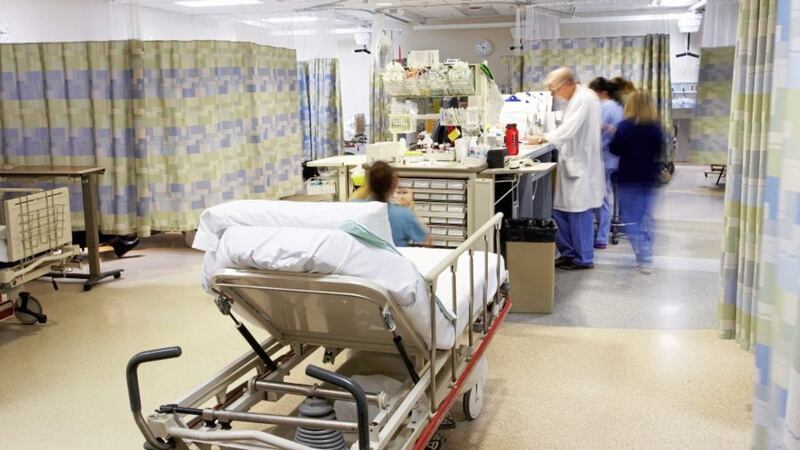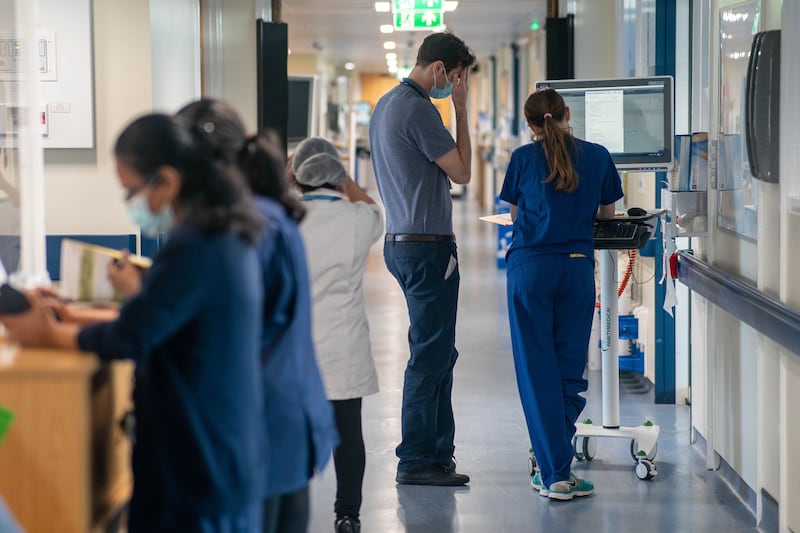PRIVATE experts are being paid to predict the busiest periods in the north's A&E hospital departments as part of a NHS drive to tackle trolley waits.
Management at the Health and Social Board have hired "external support" who will use "predictive analysis" to assess peaks in demand at casualty units, with the information fed to trusts to allow them to draw up plans ahead of pressures.
The move has angered some doctors who say the work can be done in-house and that an overhaul of how the service is managed is instead needed.
New figures reveal that almost 6,500 patients endured A&E delays in excess of 12 hours over the past year - an increase of almost 70 per cent on the 2015/16 figure. The Department of Health target is four hours.
In April, the Irish News reported how an elderly woman spent almost two days on a trolley at Antrim Area hospital's A&E department. The appalling delay was understood to be the worst in the entire NHS this year.
Over the past five years, a number of A&E task forces have been set up by government to address the crisis, with the Northern Ireland chief medical officer Dr Michael McBride and nursing chief Mary Hinds among those hired as trouble-shooters.
While there was a degree of success in reducing the maximum 12-hour breaches, the latest yearly figures show a serious deterioration in performances across the trusts with a quarter of the worst delays in January alone.
A Board spokeswoman told the Irish News that a Manchester based team, who are part of a group known as the Academic Health Science Network, have been carrying out "analytical reports" for health trusts.
She added the group had provided "ongoing assistance in the use of information for operational decision making".
"Support to the Trusts has been provided by a combination of remote analytical, clinical and managerial support as well as direct onsite presence," she added.
The spokeswoman was unable to provide a cost for the organisation's work.
The same group carried out work at Antrim Area hospital's A&E unit earlier this year, when they achieved a '100 per cent' target in seeing its patients within four hours after they changed how the entire hospital was managed over a 24-hour period.
While improvements continued in the weeks after the Antrim project, it was not possible to maintain the initial success.
One senior doctor said last night that while the English expert group is useful in bringing about change "for a few days", it is not "sustainable".
"What is needed is a complete change in management culture and behaviours," he said.
Garrett Martin, deputy director of the Royal College of Nursing, whose background is in A&E care, also raised concerns about hiring external experts.
"You can bring in all the extra managers you want as part of this 100 per cent exercise but is a false process over an intensive period. It shows that targets can be achieved but it is not sustainable without the appropriate resources," he said.
"Also, winter pressures are as predictable as day follows night. The issue is much wider than this and calls for the whole community system to be re-organised to reduce Emergency Department pressures and improve patient discharges from hospital."








